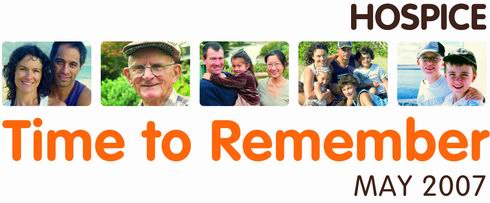 All of New Zealand’s hospices come under Hospice New Zealand’s umbrella. They provide FREE palliative care to people living with terminal illness regardless of age, race or religion, while also supporting family/whanau and friends.
All of New Zealand’s hospices come under Hospice New Zealand’s umbrella. They provide FREE palliative care to people living with terminal illness regardless of age, race or religion, while also supporting family/whanau and friends.
About 8000 new patients and their families receive help from hospices each year and that number is continually rising.
Yet hospices are only partially Government funded and rely heavily on community fundraising to cover their running costs. While operational costs differ between hospices, some must find up to $3 million each year.
Hospice New Zealand itself works to improve national policies and resourcing that affect care, is actively involved in education and workforce development, establishes standards of care, provides information and advice to hospices and the public, and supports and helps palliative care providers through co-operative activities.
What is a hospice?
Hospice palliative care can be provided in hospice inpatient units, hospital hospice wards or in a person’s home or place of residence in the community. Hospice is a concept, a philosophy of care.
Hospice or palliative care is a special type of care for people whose illness may no longer be curable. It enables them to achieve the best possible quality of life during the final stages of their illness. It includes family support and bereavement services.
Hospice services vary depending on the communities needs. Services may include inpatient and community care, bereavement care, counselling and spiritual care, day-stay care, respite care, equipment hire and some provide education and research.
Services are provided by a multidisciplinary team which may include doctors, nurses, counsellors, spiritual counsellors, occupational therapists, physiotherapists, social workers and volunteer co-ordinators.
How many hospices are there in New Zealand?
There are 37 organisations providing palliative care throughout New Zealand. All are members of Hospice New Zealand.
What services do hospices provide?
Hospices provide services based on the community’s needs. They may include inpatient and community care, bereavement care, counselling and spiritual care, day-stay care, respite care, equipment hire as well as education and research.
The services are provided by a multidisciplinary team, which may include doctors, nurses, counsellors, spiritual counsellors, occupational therapists, physiotherapists and social workers. Many services are provided by volunteers, such as massage therapy, pet therapy and creative therapy.
Where is hospice or palliative care provided?
At home – community hospice palliative care services work alongside the patient's own doctor and district nurses and family.
In day-stay – services may include medical and nursing care, spiritual support, physiotherapy, occupational therapy, hairdressing, chiropody and beauty treatments as well as varied creative and social activities.
In an inpatient facility – patients are admitted for a few days or weeks for specialist care. This may be for symptom control, respite care or terminal care.
Is it true that once you go to a hospice you are unlikely to leave?
No. Many patients spend a day or two in hospice for symptom control and pain management. They then return to their homes where their care is continued. Hospice palliative care does not have to be provided in a hospice. It is often provided in a person's own home.
Who can use hospice services?
Hospices are for all terminally ill people in need, irrespective of their religion, race, age or ability to pay. Most patients have cancer, but patients with other terminal illnesses also receive care ( e.g motor neurone disease, MS, organ failure).
Do you have to pay for hospice palliative care?
No, hospice or palliative care is free of charge to patients and their families.
The cost of care is covered by a contribution from Government through the Ministry of Health. The rest is raised from the community through fundraising activities.
Are hospices scary places?
Hospices are warm, caring places which provide the highest possible care to people at their most vulnerable. The emphasis is on improving a person’s quality of life and supporting their family, whanau and friends.
How can I help my hospice?
• By making a donation or bequest
• By offering practical help as a volunteer
• By telling your friends and colleagues about hospice
• By taking part in local fundraising activities
• By supporting local hospice charity shops.
How can I find out more?
To read more about Hospice New Zealand, visit www.hospice.org.nz
Hospice New Zealand, PO Box 6660, Wellington, ph 04 381 0266.
 Dig deep for hospice
Dig deep for hospice
THE New Zealand public is being urged to dig deep during this month’s national hospice appeal to help ensure care remains free for all New Zealanders.
All the country’s hospices come under the Hospice New Zealand umbrella and provide free palliative care to people living with terminal illness, while also supporting family/whanau and friends.
Hospice New Zealand chief executive Mary Schumacher says hospice services nationwide are in more demand than ever as patient numbers continue to rise.
But because they are only partially Government funded, she says the need for funding is vital.
“We are always amazed and overwhelmed by the public’s generosity and we are calling on their support once again to help us ensure care remains free of charge for everyone.”
While the amount each hospice must raise to cover running costs differs, some have the huge task of finding up to $3 million a year.
All hospices have joined forces for this year’s appeal and they aim to raise $650,000.
The public can help by either holding a Time to Remember event or by making a donation in their appeal envelope when it is delivered to all households between May 14-20.
Each year the Time to Remember gives people a chance to host a get-together and have some fun and raise money for their chosen hospice.
Each host will be sent a pack containing everything they need to plan their event – an album full of recipes by celebrity chef and hospice ambassador Jo Seagar, as well as invitation postcards, donation envelopes and other helpful hints.
For more information, or to register as a host, phone 0800 TIME 4 FUN (846 343) or visit www.time-to-remember.org.nz .
ENDS









Join the Discussion
Type out your comment here:
You must be logged in to post a comment.